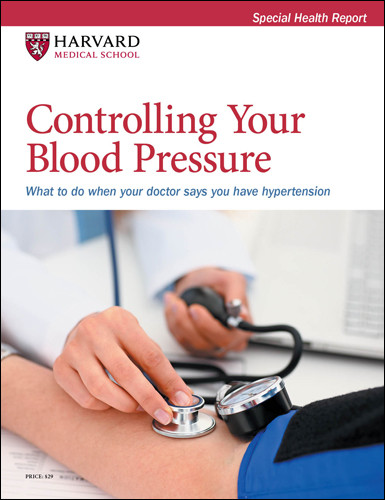24-hour blood pressure monitoring outperforms clinic readings
Research we're watching
- Reviewed by Christopher P. Cannon, MD, Editor in Chief, Harvard Heart Letter; Editorial Advisory Board Member, Harvard Health Publishing
 Ambulatory blood pressure monitoring (ABPM) involves wearing a device that automatically records blood pressure every 30 to 60 minutes for 24 hours. New research suggests that ABPM — especially the nighttime readings — can better predict death from cardiovascular disease and other causes than conventional blood pressure readings done in a clinic.
Ambulatory blood pressure monitoring (ABPM) involves wearing a device that automatically records blood pressure every 30 to 60 minutes for 24 hours. New research suggests that ABPM — especially the nighttime readings — can better predict death from cardiovascular disease and other causes than conventional blood pressure readings done in a clinic.
The study included more than 59,000 people (average age 59) from 223 primary care practices in Spain. Most (59%) were being treated for high blood pressure. Researchers estimated the associations between patients' clinic blood pressure and ABPM readings and deaths occurring during a median follow-up of nearly 10 years.
They found that ABPM was almost five times more informative for predicting death than clinic blood pressure measurements, and the nighttime readings were about six times more informative. The findings highlight the need to evaluate and control nighttime blood pressure, say the authors, whose study was published online May 5, 2023, by the journal Lancet.
Image: © clubfoto/Getty Images
About the Author

Julie Corliss, Executive Editor, Harvard Heart Letter
About the Reviewer

Christopher P. Cannon, MD, Editor in Chief, Harvard Heart Letter; Editorial Advisory Board Member, Harvard Health Publishing
Disclaimer:
As a service to our readers, Harvard Health Publishing provides access to our library of archived content. Please note the date of last review or update on all articles.
No content on this site, regardless of date, should ever be used as a substitute for direct medical advice from your doctor or other qualified clinician.
















